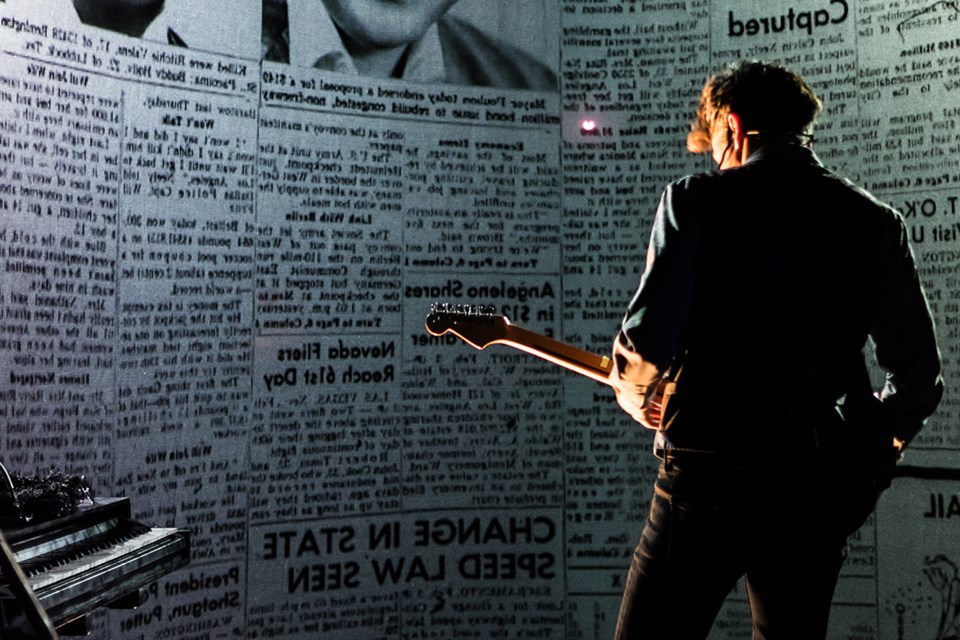The historical period that writer/director/performer Rick Miller covers with lightning speed in Boom starts appropriately with a boom and ends with a boom: the Aug. 6, 1945 bombing of Hiroshima and the launch of Apollo II on July 16, 1969. In between, he plays 100 celebrated characters — from Churchill and Truman to Pierre Trudeau and Joni Mitchell.
Holding it all together as the years, events and characters fly by are three consistent characters: Miller’s mother Maddy, from Coburg, Ont.; Laurence, a black, Chicago musician; and Rudi, an Austrian immigrant. Make that four characters because Miller is also in there. It’s frustrating if you try to connect the dots too soon, but be patient: all four characters come into sync at the end in a surprising way. Seems Maddy was, at one point, a wild child.
Miller, famous for MacHomer — his Simpsons take on Macbeth that has been seen around the world — is a spectacular impressionist.
It’s not so much that he, for example, sings like Perry Como; he doesn’t. But his body language is right on and he captures the essence of the old boozy crooner, as well as dozens of other entertainers, from Bob Dylan to Janis Joplin. When Miller was unable to get the rights to use songs, he made up new lyrics and carried on.
While the show is sometimes referred to as a lecture/performance, it’s visually dazzling. David Leclerc’s projections — black and white newspaper and video clips, photographs, old advertisements, etc. — are flashed on a tall cylindrical scrim while Miller, sometimes inside the scrim, sometimes in front of it, performs his impressions, sings and plays piano, guitar and harmonica. He’s an unstoppable, engaging, one-man wonder.
When the dates — 1945, 1946, 1947 and on and on — are projected (and 1969 seems a long way off) Boom feels like it could be interminable, but Miller’s energy never flags until his character Laurence tells us he needs to take a “leak” and cracks the joke that, surveying the audience full of “boomers,” he’s probably not the only one. “And without boomers, there would be no theatre.” Probably true. Intermission.
Miller is also a marketing wizard: after every performance there’s a short talkback session after which, in the lobby, he videotapes anyone who wants to tell an interesting personal story about the post-war boom years. These are all then posted online. MacHomer, performed in 175 cities, is no longer in Miller’s repertoire, but is available on DVD and available in the Arts Club lobby after the show. MacHomer fans are legion.
With Maddy in Canada, Rudi in Austria and Laurence in the U.S., Miller sheds light on the years 1945 to 1969 across the continents in what he calls “a living, breathing time capsule.” And because these were the events that shaped his mother’s life, Boom is “a labour of love.”
While it’s easy to accuse Miller of pandering to boomers, an interesting thing happens: it all starts to add up. The bomb. TV. The ’60s. The Pill. Assassinations. Wars. Draft dodgers. Joni Mitchell and “the seasons/they go round and round.” Those events shaped us whether we like it or not. If your children and grandchildren don’t know why you are as you are, take them to see Boom. They’ll get it and they’ll get you.
One way or the other, we were all there.
For more reviews, go to joledingham.ca.



